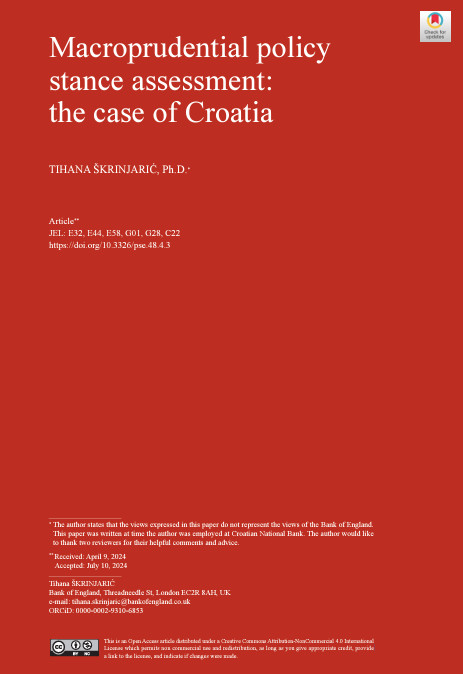Macroprudential policy stance assessment: the case of Croatia
DOI:
https://doi.org/10.3326/pse.48.4.3Keywords:
systemic risk, macroprudential policy, financial stability, financial conditions, quantile regression, policy assessment, macroprudential stanceAbstract
This paper contributes to the literature on empirical macroprudential policy (MP) stance assessment. The main purpose of this framework is to evaluate the potential benefits and costs of MP tools and instruments that have been employed in a financial system. We focus on a country that has a fairly active macroprudential policy to establish the initial framework for assessing the effectiveness of macroprudential policy in Croatia. A quantile regression approach is used in order to evaluate the efficiency of the MP stance, on quarterly data ranging from the mid-1990s until 2022. It is shown that somewhat different results could have been obtained if a variable definition has been employed. Measurement of the MP stance is difficult, then, as it depends on the definition of the macroprudential policy variable, selection of other important variables in the analysis, as well as other methodological factors.

Downloads
Published
How to Cite
Issue
Section
License
Copyright (c) 2024 Tihana Škrinjarić

This work is licensed under a Creative Commons Attribution-NonCommercial 4.0 International License.








